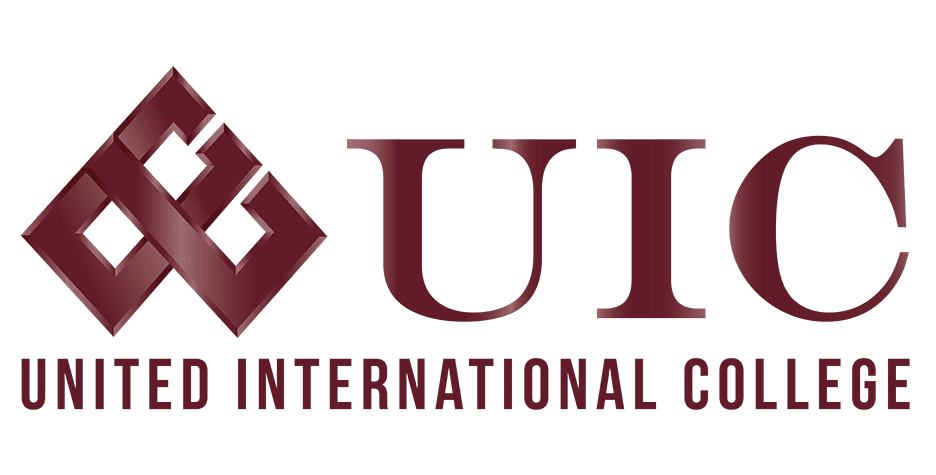Mental Health, Seasons of Life, and the Power of Agency: Dr. Nguper Dooyum-Laha Inspires Students at United International College
By Dr. Marcela Moyano
In an era marked by rapid technological change and rising emotional pressures among young people, the importance of mental well-being has never been more urgent. This was the central message delivered by Dr. Nguper Dooyum-Laha, a medical doctor and writer whose work centers on personal development, preventive care, and youth empowerment.
Speaking to students at United International College, Dr. Dooyum-Laha grounded her lecture in the World Health Organization’s definition of mental health — a definition she believes young people must understand if they are to thrive in today’s complex world.
The World Health Organization (WHO) defines mental health as:
“a state of mental well-being that enables people to cope with the stresses of life, realise their abilities, learn well and work well, and contribute to their community.”
This definition, she explained, goes far beyond the absence of illness. It speaks to capacity, usefulness, resilience, and meaning — qualities every young person can cultivate.
Agency in the Age of Artificial Intelligence
Dr. Dooyum-Laha opened her discussion by focusing on individual agency — the ability of a person to make conscious, self-directed choices.
“In this age of artificial intelligence,” she told the students, “you must pause long enough to ask yourself what your vision for life truly is.”
She emphasized that critical thinking is no longer optional. Young people must actively learn to evaluate information, resist external pressures, and make informed choices that align with their identity and values.
“You need to know who you are,” she said. “If you don’t, someone else will decide for you.”
The Seasons of Life — A Nigerian Metaphor
Drawing on a familiar Nigerian experience, Dr. Dooyum-Laha compared emotional well-being to the rhythms of the rainy season and the Harmattan dry season.
“Life comes in seasons,” she said. “There will be moments of growth and moments of drought. But just as we prepare for the physical seasons, we can prepare for the emotional ones.”
Her message was simple but profound:
Stress is inevitable — but suffering is not.
With preparation, awareness, and the right tools, young people can navigate difficult periods with greater resilience.
Tools for Resilience: Movement, Support, and Community
Dr. Dooyum-Laha highlighted three essential pillars of mental well-being:
1. Exercise as a Stress-Coping Mechanism
Movement, she explained, stimulates the release of endorphins, the body’s natural mood enhancers. Exercise, therefore, becomes more than fitness — it becomes emotional medicine.
2. The Power of Support Systems
“No man is an island,” she reminded the students. Human connection is essential. Hugs release dopamine. Conversations create safety. Community prevents isolation. “You are important to the next person,” she said. “Never underestimate the people in your life.”
3. Living a Useful and Productive Life
Purpose is a stabilizer. According to the WHO, contributing to one’s community is a core part of mental health. Work — whether academic, creative, or social — gives structure and meaning to the human experience.
A Message of Worth and Uniqueness
In one of the most resonant moments of her lecture, Dr. Dooyum-Laha reminded the students:
“You are unique and your DNA is just yours. Your presence in this world is valid and you do not need to prove it to anyone.”
She compared each individual to a work of art.
“An artist takes time to shape its artwork,” she said. “We are all unique pieces of art.”
This, she argued, is the mindset that protects young people from comparison, self-doubt, and the mental pressure to perform.
A Smile as a Catalyst for Change
Dr. Dooyum-Laha closed her session with a simple invitation that carried extraordinary weight:
“Today, smile at one person. That’s how we can change the world.”
A smile appears small, she added, but has the power to create connection, encourage hope, and shift someone else’s emotional landscape.
A Month of Awareness, A Lifetime of Impact
Her talk was especially timely — delivered in November, a period dedicated in Nigeria to raising mental health awareness. She also acknowledged International Men’s Day, noting the importance of holding space for men’s emotional struggles, which are often overlooked or culturally minimized.
Dr. Nguper Dooyum-Laha’s message to the students was ultimately one of hope, agency, and preparation. Mental health, she insisted, is not a distant concept reserved for crisis. It is a daily practice, a personal responsibility, and a communal effort.
And with a smile, a supportive community, and self-awareness, every young person can step into their future better equipped to cope, grow, and contribute.
For further information on the programs United International College offers, please contact the Admissions Department at uicadmissions@uinternational.edu

